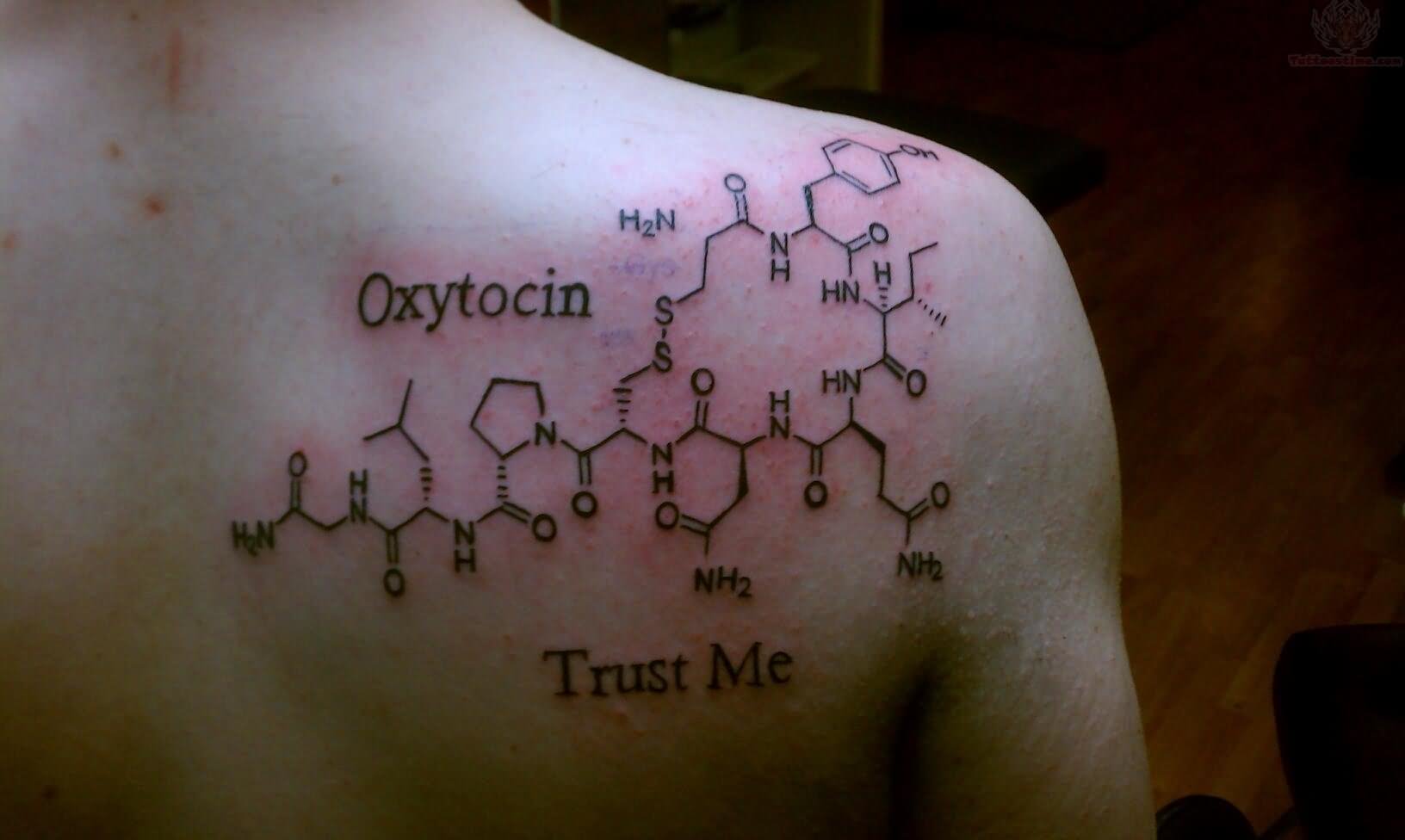We reach more than 65,000 registered users in Dec!! Register Now

Love your enemy? Hormone spray may help with that.
- April 23, 2014
- 523 Views
- 0 Likes
- 0 Comment
Could in≠hal≠ing some≠thing really help fos≠ter world peace, as some hip≠pies claim? Don't count on it. Yet a study has found that sniff≠ing one spe≠cial sub≠stance may make peo≠ple feel more sor≠ry for the suf≠fer≠ing of out≠siders, stig≠ma≠tized peo≠ple and out≠right en≠e≠mies. That chem≠i≠cal is ox≠y≠to≠cin, a hor≠mone al≠ready nat≠u≠rally pre≠s≠ent ...
Could in≠hal¬≠ing some¬≠thing really help fos¬≠ter world peace, as some hip¬≠pies claim?
Don't count on it. Yet a study has found that sniff­ing one spe­cial sub­stance may make peo­ple feel more sor­ry for the suf­fer­ing of out­siders, stig­ma­tized peo­ple and out­right en­e­mies. That chem­i­cal is ox­y­to­cin, a hor­mone al­ready nat­u­rally pre­s­ent in the brain and some­times called the trust hor­mone.
The study found that even peo­ple in­volved in one of the world's most emo­tion­ally fraught con­flicts, the Is­rae­li-Pal­es­tin­ian strug­gle, seem to find a new heart for the oth­er side af­ter they in­hale ox­y­to­cin.
But the find­ings al­so run count­er to those of past stud­ies in some ways, sug­gest­ing that bi­ol­o­gists are only be­gin­ning to clar­i­fy the func­tion of the fas­ci­nat­ing hor­mone known to play a role in so­cial be­hav­ior and bond­ing in both hu­mans and an­i­mals.
‚ÄúOxy¬≠tocin re¬≠markably in¬≠creased em¬≠pa¬≠thy to the pain of Pales¬≠tini¬≠ans‚ÄĚ among Jew¬≠ish Is¬≠raelis in an ex¬≠pe¬≠ri¬≠ment, wrote re¬≠search¬≠ers, re¬≠port¬≠ing their¬†find¬≠ings¬†Sept. 22 on¬≠line in the jour¬≠nalPsy¬≠cho¬≠neu¬≠ro¬≠en¬≠docrin¬≠ol¬≠ogy. The in¬≠creased em¬≠pa¬≠thy re¬≠duced the par¬≠ti¬≠ci¬≠pants' ‚Äúin-group bi¬≠as,‚ÄĚ they added-the pre¬≠dom¬≠i¬≠nant ten¬≠den¬≠cy of peo¬≠ple to show more em¬≠pa¬≠thy for ‚Äúthose who they per¬≠ceive as si¬≠m¬≠i¬≠lar to them¬≠selves.‚ÄĚ
In their re¬≠port, the re¬≠search¬≠ers said they re¬≠cruited 55 Jew¬≠ish Is¬≠raelis. These par¬≠ti¬≠ci¬≠pants were shown some pho¬≠tos of peo¬≠ple in pain¬≠ful situa¬≠t¬≠ions, such as hav¬≠ing a car hood closed on a hand, and oth¬≠er pho¬≠tos of peo¬≠ple in non-pain¬≠ful situa¬≠t¬≠ions. La¬≠bels with the pho¬≠tos in¬≠di¬≠cat¬≠ed that the pic¬≠tured per¬≠son was from one of three groups. Ei¬≠ther he or she was anoth¬≠er Is¬≠rae¬≠li Jew; or an Arab-often viewed as the ‚Äúen¬≠e¬≠my‚ÄĚ group for Is¬≠raelis; or a Eu¬≠ro¬≠pe¬≠an, cho¬≠sen as a middle-ground group.
The par­ti­ci­pants viewed the pho­tos af­ter hav­ing tak­en ei­ther ox­y­to­cin or an in­ac­tive sub­stance, and were lat­er as­sessed for how much em­pa­thy they showed to the peo­ple pic­tured.
![oxytocin[1]](http://machprinciple.com/wp-content/uploads/2014/04/oxytocin1.jpg)
Ox­y­to­cin sig­nif­i­cantly in­creased par­ti­ci­pants' em­pa­thy for the Arabs in pain, while leav­ing un­changed their em­pa­thy for the oth­er two groups in pain, the re­search­ers found. That sug­gests, they added, that ox­y­to­cin does­n't nec­es­sarily make peo­ple em­pa­thize more with those they al­ready em­pa­thize with.
The ex­pe­ri­menters meas­ured view­ers' em­pa­thy by ask­ing them to rate how much pain they thought the pic­tured per­son was ex­periencing.
Past stud­ies in­di­cate that tak­ing ox­y­to­cin helps peo­ple over­come shy­ness, in­creases their trust in oth­ers, and helps them read oth­ers' emo­tion­al states bet­ter. But find­ings with ox­y­to­cin and em­pa­thy have been mixed. Some stud­ies have found that ox­y­to­cin in­creases peo­ple's em­pa­thy for oth­ers in their own group-at the ex­pense of those out­side the group. That's al­most the op­po­site of the new find­ings.
So why the in­con­sist­en­cy?
It might have to do with the pre¬≠cise func¬≠tion of ox¬≠y¬≠to¬≠cin, said the au¬≠thors of the new stu¬≠dy, Si¬≠mone G. Shamay-Tsoory of the Uni¬≠vers¬≠ity of Hai¬≠fa in Is¬≠ra¬≠el, Ah¬≠mad Abu-Akel of the Uni¬≠vers¬≠ity of Bir¬≠ming¬≠ham in the U.K., and col¬≠leagues. Re¬≠search sug¬≠gests ox¬≠y¬≠to¬≠cin seems to make ‚Äúso¬≠cially rel¬≠e¬≠vant in¬≠forma¬≠t¬≠ion‚ÄĚ more viv¬≠id in the view¬≠er's mind, they wrote, and the em¬≠pa¬≠thy ef¬≠fects fol¬≠low.
So if study par¬≠ti¬≠ci¬≠pants have no par¬≠tic¬≠u¬≠lar in¬≠forma¬≠t¬≠ion about the oth¬≠ers that they are deal¬≠ing with, ox¬≠y¬≠to¬≠cin might not in¬≠crease em¬≠pa¬≠thy, they ar¬≠gued. This may have been the case with some past stud¬≠ies, where par¬≠ti¬≠ci¬≠pants were di¬≠vid¬≠ed in¬≠to ‚Äúteams‚ÄĚ but not pro¬≠vid¬≠ed any in¬≠forma¬≠t¬≠ion about each oth¬≠er.
‚ÄúOur re¬≠sults may have im¬≠por¬≠tant im¬≠plica¬≠t¬≠ions for rec¬≠on¬≠cilia¬≠t¬≠ion and con¬≠flict res¬≠o¬≠lu¬≠tion,‚ÄĚ the re¬≠search¬≠ers wrote. ‚ÄúWhile spec¬≠u¬≠la¬≠tive, train¬≠ing Is¬≠rae¬≠li and Pal¬≠es¬≠tin¬≠ian mem¬≠bers of the ne¬≠go¬≠ti¬≠at¬≠ing par¬≠ties to con¬≠sciously con¬≠tem¬≠plate the per¬≠spec¬≠tive of the oth¬≠er,‚ÄĚ they went on, could help cre¬≠ate ‚Äúan en¬≠vi¬≠ron¬≠ment where peace is giv¬≠en a chance.‚ÄĚ
![oxytocin-molecule-tattoo[1]](http://machprinciple.com/wp-content/uploads/2014/04/oxytocin-molecule-tattoo1-1024x612.jpg)
Source : http://www.world-science.net









